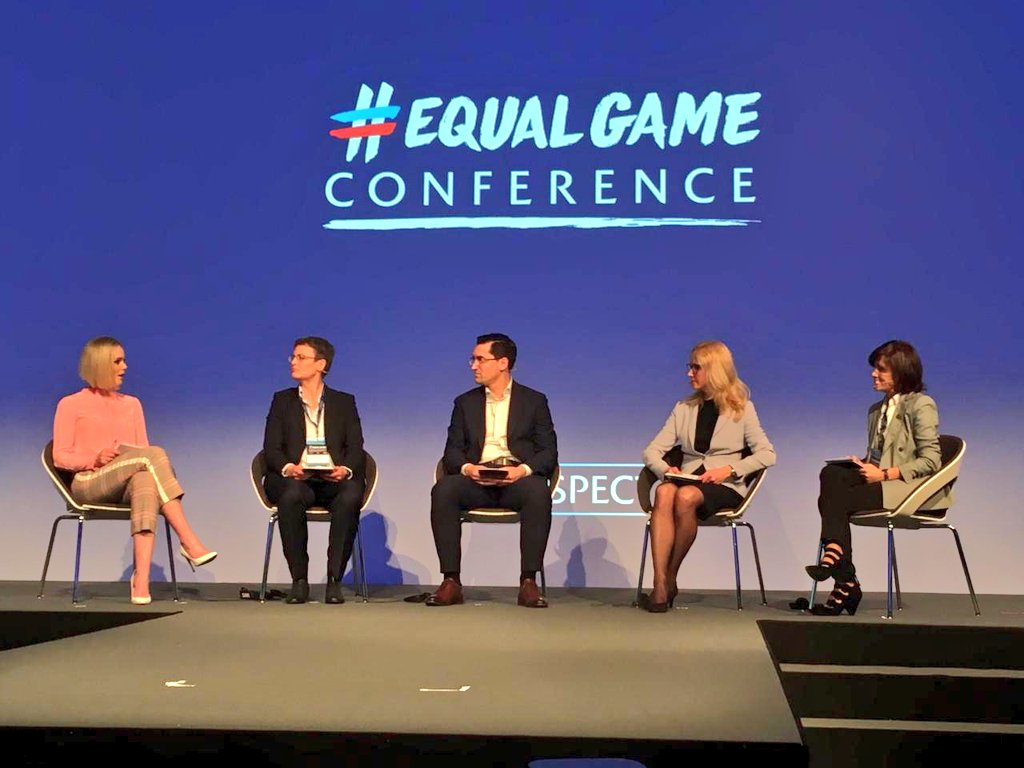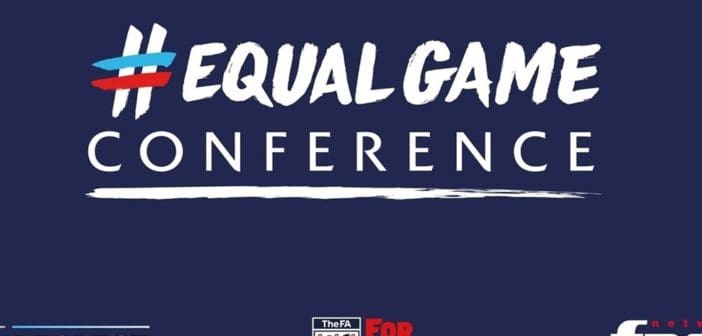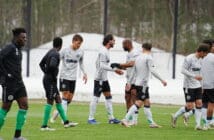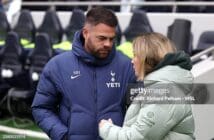UEFA held their first ever #EqualGame Conference on Tuesday 2 April and Wednesday 3 April which was hosted by the FA at Wembley Stadium.
The first day, which I attended, was focused on efforts to tackle all aspects of racism and discrimination in football.
UEFA president Aleksander Ceferin opened the conference by stating:
“I am ashamed that in 2019 we have to organise a conference to combat discrimination and intolerance in football. We must dare to change.”
“I am ashamed that here in Europe not a weekend goes by without a discriminatory act taking place in a football stadium, at amateur level or professional level.”
FA Chairman Greg Clarke said:
“The young men and women who take the field representing our clubs and countries not only deserve but should be entitled to play their football in a safe environment entirely free from racial abuse.”
For the most part, the first session of the conference felt and sounded like things that we had heard many times before. All talk. No action.
Interestingly, the Montenegro Football Association general secretary Momir Djurdjevac was at the conference and boldly claimed that a number of officials inside the Podgorica stadium didn’t hear the abuse decried by England players, including the country’s president, prime minister, sports minister, and Olympic committee head.
While he did go on to say that he wasn’t saying it didn’t occur, that seemed to be exactly what he was saying. In other words, the most senior officials didn’t hear it, so it couldn’t possibly be true. There were audible gasps from the audience, but it wasn’t particularly surprising. Djurdjevac said:
“They were a handful of idiots and because of those three or four idiots, Montenegro has been pilloried.”
“For the sake of all of us and the sake of the media I would like to apologize to all those who have gained a very bad impression from Podgorica and let the disciplinary inspectors of UEFA do their work unfettered,”
Djurdjevac seemed more keen to ensure Montenegro’s reputation was not tarnished rather than to even entertain the possibility that racism had occurred when Montenegro faced England.
Fortunately, the conference took a turn for the better after this. Honey Thaljieh, the co-founder and first ever captain of the Palestinian Women’s National Football Team gave a brilliant and empowering keynote speech.
She spoke about falling in love with football at the age of seven and playing on the concrete streets in Bethlehem with boys, behind her parents back because nobody thought that girls should play football. Thaljieh said:
“Women continue to face obstacles in football. The number of women in leadership positions in football remains low.”
During her speech, Thaljieh asked five questions:
- Do statutes and regulations matter?
- Are we in a post-sexism era?
- Do we have enough diversity and inclusion in football?
- Do we women truly empower other women?
- What is the true power of football?
All of the questions had fascinating answers with Thaljieh talking about co-founding the first women’s team in Palestine and how hundreds of women now play football Palestine. She also touched on the fact that there are many powerful women in influential positions but men are still the primary decision-makers in football.
Thaljieh recalled her own childhood and said that she didn’t have any women to look up to and recognises we all need role models to aspire to. Other points were that we have a responsibility to empower other women and women should advocate for one another, not just with words but with actions.
A panel discussion with Klara Bjartmarz, General Secretary of the Iceland Football Association, Răzvan Burleanu, President of the Romanian Football Federation, Anne Rei, General Secretary of the Estonian Football Association and Eibar President Amaia Gorostiza based around women in football leadership proved to be quite interesting.

The most powerful statement from this discussion came from Rei who said:
“We have to change the mindset – women are the same people as men. I really hope in 10-15 years when we are speaking about leadership we don’t speak about ‘women in leadership’ and ‘men in leadership’.”
Overall, the conference was very thought-provoking. It was great to hear from so many women in influential positions and learn about their desire to ensure that women’s football gets the increased exposure it needs to succeed.
![Prost International [PINT]](https://prostinternational.com/wp-content/uploads/2021/08/PINTtFontLogoRoboto1536x78.jpg)



